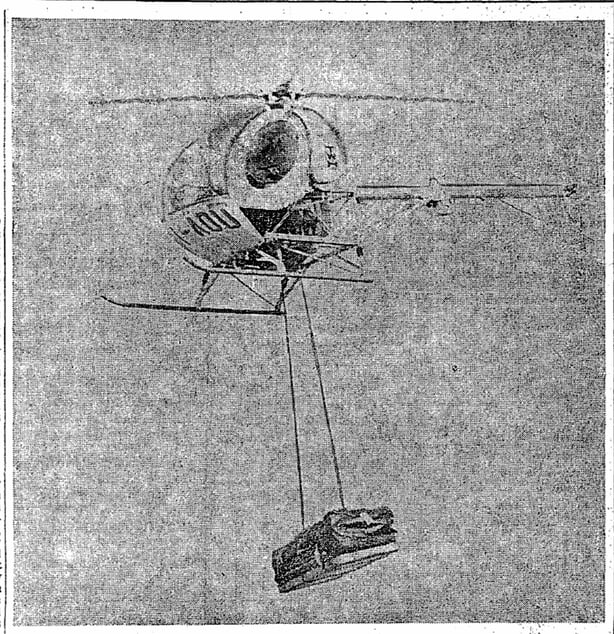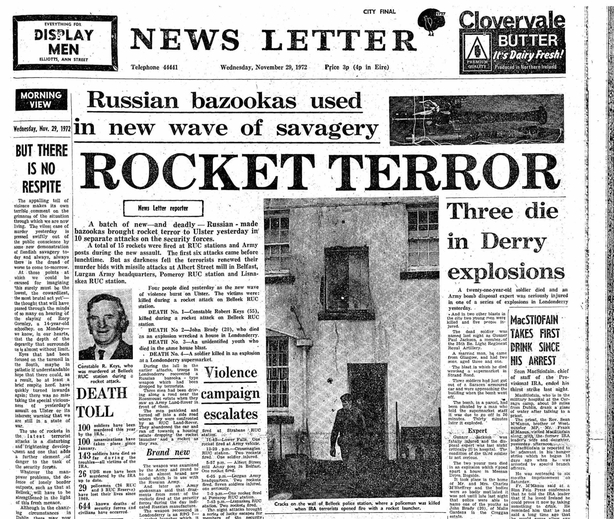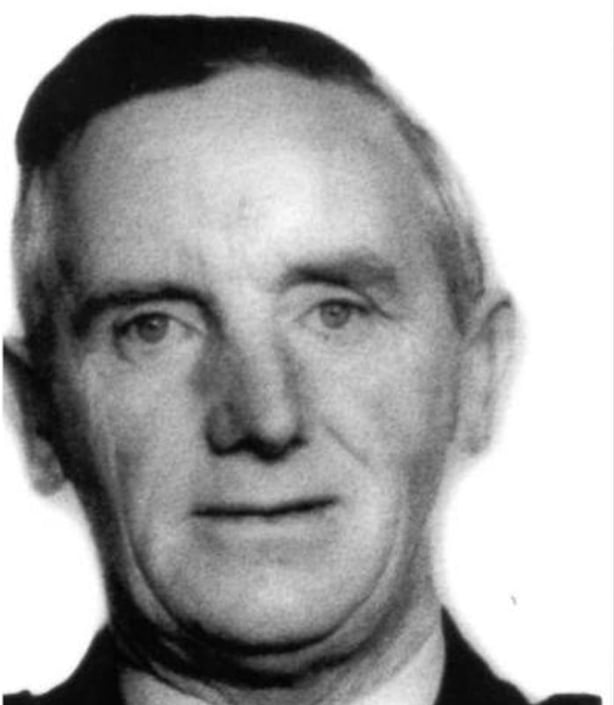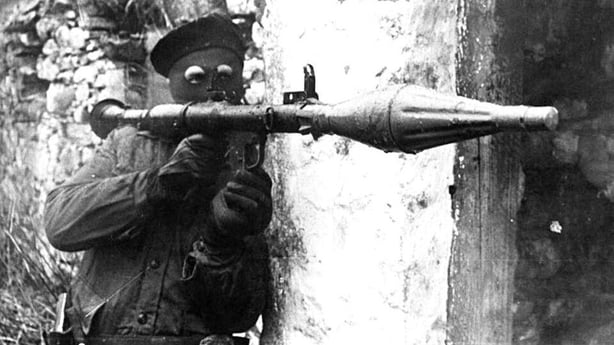Over the next two weekends, on podcast and on RTÉ Radio 1, RTÉ Documentary On One tells the largely unknown and undocumented story of the first ever shipment of weapons from Libya to the Provisional IRA in a two part documentary titled First Consignment.
We need your consent to load this rte-player contentWe use rte-player to manage extra content that can set cookies on your device and collect data about your activity. Please review their details and accept them to load the content.Manage Preferences
Doc On One's Liam O'Brien previews First Consignment below - listen above.
I first came across this story when during the summer of 2022, I visited Des Long to ask about the possibility of weapons being smuggled into Ireland in 1967, and whether the IRA had anything to do with this. Des Long was involved in the old Munster IRA like his father before him – and he subsequently became Director of Finance for the Provisional IRA in the early 1970s.
The reason for my visit to Des’ home in Limerick was to inquire for another documentary we were making about a woman named Mary Folen who had the most unfortunate story of having her coffin dropped twice from the skies (Mary had died in America, her remains flown home to Shannon before being transported by helicopter for burial on her native Inis Meáin, Oileán Árainn). Des assured me, at least to his knowledge, that the IRA did not have any involvement with Miss Folan’s story – and no weapons were placed in her coffin. In 1967, the troubles in Northern Ireland had not yet started, nor had the Provisional IRA been formed yet.

However, during the course of our conversation, Des briefly mentioned a story I’d never heard of - of the first time the Provisional IRA were gifted weapons by Colonel Muammar Gaddafi in 1972, and how the IRA successfully landed these into Munster – before training on them in Tipperary and transporting them north for use across Northern Ireland.
I was intrigued by this story, not just because I hadn’t heard of it, but because when I went looking to find out more, there was very little I could find. Some books had mentioned some aspects of the story, but only in passing. And so it appeared it was a story that had never been told in full.

The Ireland of 1970s, both North and South, was in turmoil. The year this story took place, 1972, was the darkest of years with the highest ever amount of deaths in the troubles – over 479 people were killed in that single year – and thousands more injured. That level of violence, threat, injury and death is unimaginable for anyone who didn’t live through it. And in many ways, it’s amazing peace was forged from those times, albeit that it didn’t happen until the Good Friday agreement was signed in 1998, marking at end to the 30 year conflict.
In First Consignment, I set out to tell the story of this first shipment of arms from Gadaffi to the Provisional IRA, by telling the story of the weapons themselves. Together with my co-narrator Conor Keane, we follow the weapons from their place of manufacture in Russia, through to the first victim that was killed by them in Ireland, RUC Constable Robert Keys. 25 RPG-7 rockets launchers and 496 warheads were contained in this first shipment. I meet with some of those involved in the importation of the weapons, like Des Long, and those involved in the IRA training of them, like Marcus Fogarty, from Cashel in Tipperary. I also spoke with an ex-KGB agent, a US military hardware expert, Fintan Drury who actually met Gaddafi and many others.

On Tuesday, November 28th, 1972, the Provisional IRA launched 10 attacks across Northern Ireland with the weapons Gaddafi had gifted to them, firing 15 warheads/rockets at various targets throughout the course of the day, beginning with an attack on Beleek RUC station, in Co. Fermanagh, just yards from the border with the Republic of Ireland.
The strongest voice I recorded was that of Robert, or Bertie Keys, the youngest son of RUC Constable Robert Keys - the first victim killed by these weapons. Robert’s life, together with his mother, siblings and wider family was changed forever when their father never came home. A 55-year-old father of six, Robert had just come off duty in Belleek RUC station on a Tuesday morning, when at 9.35am, members of the IRA fired a rocket at the station. Robert was hit by this rocket as he walked down the stairs to go home, killing him instantly.

For those involved with the importation of weapons, they were at war with Britain. On the other side, you had a British government, army and police force who was defending its peoples and country against IRA attacks. And with such a legacy of damage and division in Northern Ireland, stories like these are hard to tell. On the one hand, in telling them you’re giving voice to those who actively took a role in actions which led to, directly or indirectly, the killing and injuring of people across Northern Ireland and beyond. And yet if we don’t tell these stories, not only will they be forgotten, but nothing will have be learned from them. Most are now on the edges of living memory. We can see in many parts of the world, when it comes to conflict, history has a tendency to repeat itself, to not learn from its past, nor its mistakes.
Part of our remit as the audio documentary/factual unit within RTÉ is to tell these stories here in Ireland and beyond without judgement, without bias, to record the history of what happened and leave it to the listener to take or learn from it what they will.

RTÉ Documentary On One: First Consignment is available on podcast from wherever you get your podcasts (search for Documentary On One) or tune in to RTÉ Radio 1 at 2pm on Saturday, September 28th and October 5th 2024. Listen to more from Documentary On One here.
